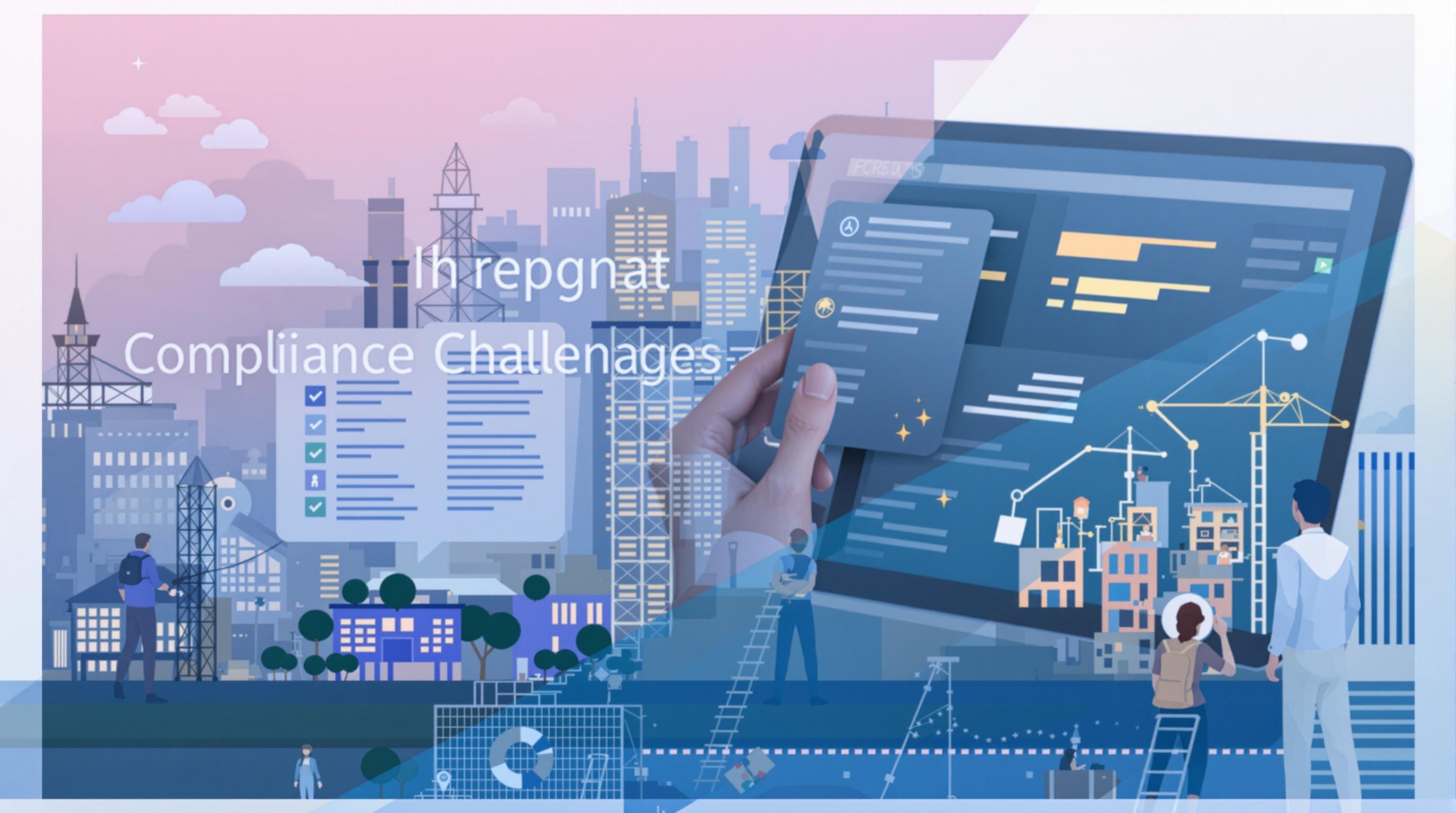Related Articles
- Top 6 AI-Powered Support Tools From the Last Five Years Revolutionizing Customer Interaction Efficiency
- Top 6 Subscription Pricing Strategies Powering SaaS Growth Since 2019 Compared and Ranked
- 7 Game-Changing Support Platforms Released Since 2019 That Are Redefining Customer Service Excellence
- Top 6 Cutting-Edge HR Solutions Revolutionizing Hybrid Workforce Management Since 2019
- Unveiling the Shadow Costs: How Hidden Fees Shape Consumer Trust and Loyalty in Commercial Transactions
- 7 Emerging Project Management Apps from the Last Five Years That Outsmart Legacy Giants
9 Critical Compliance Challenges Solved by Advanced HR Software Solutions in Regulated Industries
9 Critical Compliance Challenges Solved by Advanced HR Software Solutions in Regulated Industries
9 Critical Compliance Challenges Solved by Advanced HR Software Solutions in Regulated Industries
Introduction
Regulated industries such as healthcare, finance, and manufacturing face an increasingly complex landscape of compliance requirements. Managing these regulatory demands effectively is crucial to avoid penalties, legal issues, and reputational damage. Human Resources (HR) departments are at the core of maintaining compliance because employees directly influence how companies adhere to rules and standards.
Advanced HR software solutions have emerged as vital tools to help organizations navigate this complex environment. These platforms offer automated compliance tracking, reporting, and employee management that reduces human error and streamlines regulatory adherence. This article explores nine critical compliance challenges solved by these technologies.
By understanding how advanced HR software addresses common compliance obstacles, regulated industries can better prepare for audits, improve employee accountability, and maintain operational integrity.
Challenge 1: Employee Training and Certification Tracking
In regulated industries, maintaining up-to-date employee certifications and training is mandatory. Failure to do so can result in compliance violations and unsafe working conditions. Traditional manual tracking methods are labor-intensive and prone to errors, increasing the risk of oversight.
Advanced HR software solutions provide centralized dashboards to monitor training status and certification expiration dates. Automated alerts and notifications remind both employees and managers when renewal is required, ensuring compliance with industry standards.
According to a report by Deloitte, companies using automated compliance training systems improve renewal rates by up to 30%, demonstrating the efficacy of these solutions in regulated sectors (Deloitte, 2020).
Challenge 2: Regulatory Reporting and Audits
Regulated industries must regularly submit detailed reports to oversight bodies and undergo audits to verify compliance. Preparing these reports manually is time-consuming and error-prone, which can delay submissions and invite penalties.
Advanced HR software automates data collection and report generation, making compliance documentation more accurate and timely. The software often includes audit trails that provide transparency and accountability for HR-related actions.
This automation not only enhances operational efficiency but also improves compliance posture, which is essential for passing stringent regulatory audits with minimal disruptions.
Challenge 3: Data Security and Privacy Compliance
Handling sensitive employee information requires strict adherence to data protection laws such as GDPR, HIPAA, and other industry-specific privacy regulations. Non-compliance can result in substantial fines and damage to an organization’s reputation.
Advanced HR software solutions incorporate encryption, access controls, and regular security updates to protect sensitive data. Role-based access ensures that only authorized personnel can view or modify confidential information.
By utilizing these security features, organizations reduce vulnerabilities and demonstrate compliance with privacy regulations, thereby safeguarding employee data and company credibility.
Challenge 4: Workforce Diversity and Inclusion Reporting
Diversity and inclusion (D&I) regulations require organizations to track and report workforce demographics accurately. Manual reporting can lead to incomplete or inconsistent data, undermining compliance efforts.
Many advanced HR platforms offer analytics tools specifically designed for D&I metrics. These tools help gather, analyze, and report demographic data in compliance with legal requirements, including EEOC reporting in the United States.
Efficient tracking and reporting enhance transparency and enable organizations to meet legal obligations while promoting an inclusive workplace culture.
Challenge 5: Managing Labor Law Compliance
Labor laws around wages, hours, overtime, and workplace conditions vary widely across jurisdictions, making compliance complex for companies with a multi-location workforce. Failure to adhere can result in costly legal actions.
Advanced HR software automates tracking of work hours, breaks, and overtime calculations according to local labor laws. Alerts notify HR teams of potential compliance violations before they arise.
By maintaining accurate and compliant labor records, organizations protect themselves from lawsuits and regulatory penalties while ensuring fair treatment of employees.
Challenge 6: Employee Health and Safety Compliance
Workplace health and safety regulations require regular monitoring, incident reporting, and corrective action documentation to maintain compliance. Managing these manually is inefficient and risks missing critical steps.
HR software integrated with health and safety modules enables streamlined reporting of incidents, tracking employee safety training, and scheduling audits. These functionalities ensure timely compliance with OSHA and other regulatory bodies.
Real-time access to safety data facilitates proactive risk management, improves workplace conditions, and supports regulatory compliance efforts.
Challenge 7: Managing Employee Background Checks
Background checks are mandatory in many regulated industries to verify employee qualifications and prevent fraud or security risks. Manual tracking of screening results can be cumbersome and error-prone.
Advanced HR systems integrate background check workflows that automate ordering, tracking, and storing results securely. Automated status updates help HR teams maintain compliance with screening policies and regulatory requirements.
This streamlined process reduces administrative burdens and minimizes risk associated with hiring non-compliant personnel.
Challenge 8: Policy Management and Employee Acknowledgments
Ensuring that employees have reviewed and acknowledged company policies—especially those related to compliance and ethics—is critical in regulated industries. Tracking acknowledgments manually leaves gaps and risks non-compliance.
Modern HR software allows centralized storage and distribution of policies. It tracks employee receipt and acknowledgment digitally, providing audit-ready compliance records.
This capability enforces accountability and supports legal defensibility by proving employees have been informed of relevant guidelines.
Challenge 9: Managing GDPR Compliance for Global Workforces
For organizations operating across EU borders, GDPR imposes stringent requirements on data handling and employee rights. Ensuring compliance across multiple countries and systems is complex and risky without centralized management.
Advanced HR software offers built-in GDPR compliance features such as consent management, data access requests, and automated data retention policies. These tools help organizations respect employee privacy rights while adhering to regulatory mandates.
Unified compliance oversight reduces legal risk and simplifies audit processes, making GDPR management less burdensome for global HR teams.
Conclusion
Compliance challenges in regulated industries are multifaceted and continuously evolving. Advanced HR software solutions provide a comprehensive approach to managing these complexities efficiently and accurately.
By automating key compliance tasks such as training tracking, reporting, data security, and policy management, these platforms help organizations mitigate risks and meet regulatory expectations. The investment in technology ultimately contributes to safer, more ethical, and legally compliant workplaces.
As regulatory environments grow stricter, leveraging advanced HR software is becoming essential for regulated industries striving to maintain excellence in compliance and operational integrity.
References:
Deloitte. (2020). Learning automation in compliance training. Deloitte Insights. Retrieved from https://www2.deloitte.com/insights




